2025 | March Newswrap: Updates from LVC members worldwide
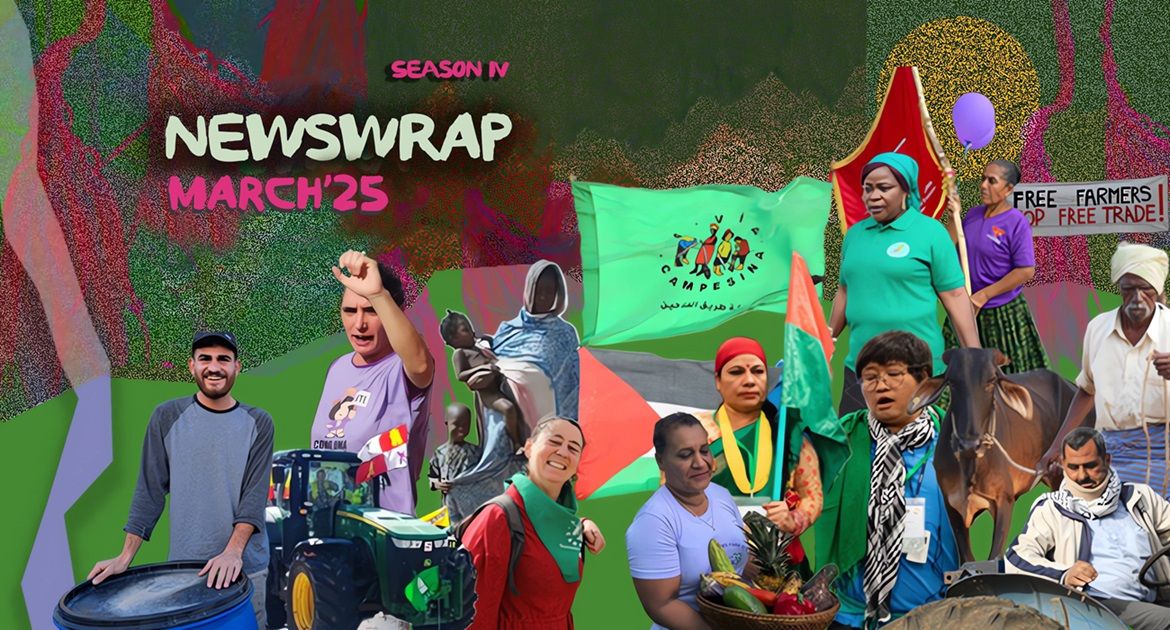
(Bagnolet, April 3, 2025) March was a month of massive mobilizations by women and gender minorities, both in rural and urban areas, demanding rights amid a rising tide of conservatism, fascism, and violence. Across the world, movements united to denounce the rollback of hard-won rights, legal setbacks, and the alarming increase in feminicides and transfeminicides. For more details on their key actions and demands from their territories, click here.
In March, La Via Campesina issued a call for solidarity actions to commemorate the International Day of Peasant Struggles. Since the 1996 Eldorado dos Carajás massacre in Brazil—where 21 peasants were killed while fighting for agrarian reform, a crime that remains unpunished after 29 years—we have gathered every April 17th in global solidarity actions and mobilizations, because forgetting only serves those who continue to oppress. This April, we stand together to honor that struggle, demand justice, and strengthen our resistance. Check out our call to action and follow our key initiatives on the map.
Here are some important news and updates from March that we have compiled from different regions of La Via Campesina.
Asia
The Bangladesh Agricultural Workers’ Federation has long been fighting for the regulation of agricultural workers on public farms. This year, the Federation intensified its efforts by submitting the “Agricultural Workers Employment and Protection Act” to the national government and the Labour Reform Commission. It aims to ensure the legal protection and welfare of agricultural workers, while establishing inclusive labour legislation that complies with international conventions. In March, they also submitted these proposals to the advisor to the Ministry of Fisheries and Animal Resources. These initiatives follow a national mobilisation organised by BAFLF in 2024.
In March, Nepal hosted the International Peoples’ Tribunal to hold the IMF and World Bank accountable for policies worsening debt crises, weakening public services, and expanding fossil fuel financing. Judges heard cases, prosecutors filed charges, and witnesses from South Asia testified. The Kissan Rabita Committee of Pakistan and the All Nepal Peasants Federation, both LVC members, participated. With Pakistan and Sri Lanka heavily committed to the IMF, free-market policies continue to harm rural communities and hinder local development.
In Thailand, from 17-19 March 2025, the Assembly of the Poor organised a meeting on the Declaration of Peasants’ Rights to collect data on violations of peasants’ rights in Thailand, with the participation of more than 60 participants from various agricultural sectors. The findings were presented to the Minister of Agriculture and Cooperatives, and the National Human Rights Commissioner. The report revealed persistent rights violations, including land disputes with state conservation areas, land confiscations and economic risks arising from low crop prices and high production costs. Recommendations included subsidies for production costs, price support and implementation of agricultural price insurance to protect farmers’ livelihoods.
South Korea’s government is moving to approve GM potato imports, including “SPS-Y9,” despite strong opposition. The decision, ahead of trade talks with the U.S., raises concerns of external pressure. Peasant unions and consumer groups warn of health risks, especially for children, as GM potatoes in fast food would go unlabelled. They argue this threatens domestic potato farming and food security. Activists urge the government to halt approval to protect food sovereignty and farmers’ livelihoods.
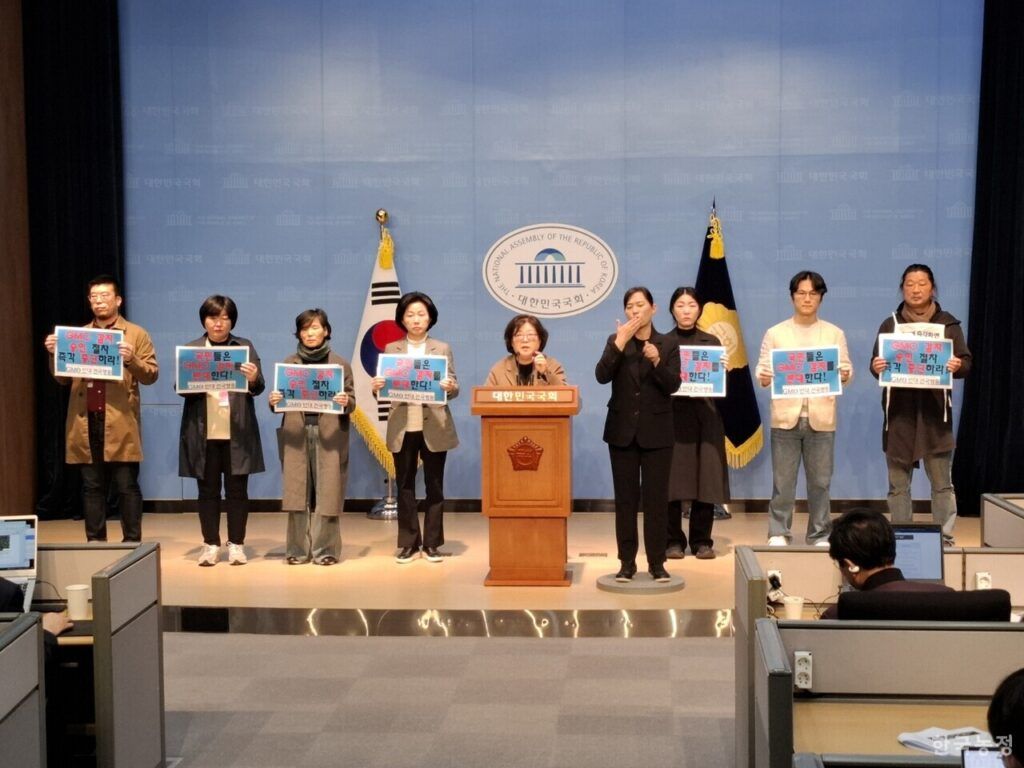
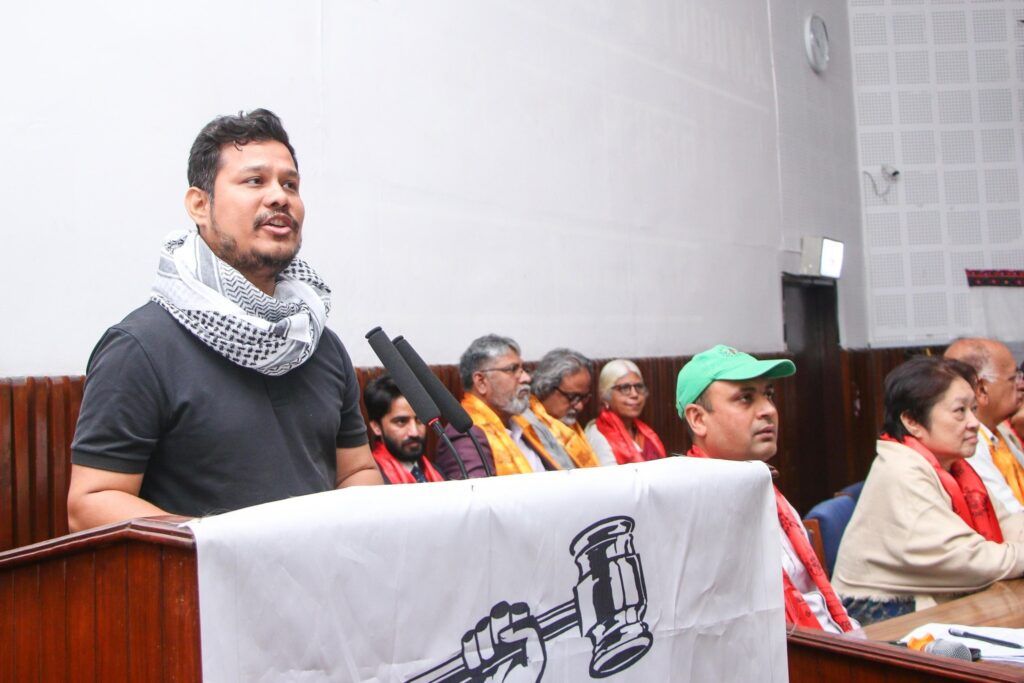
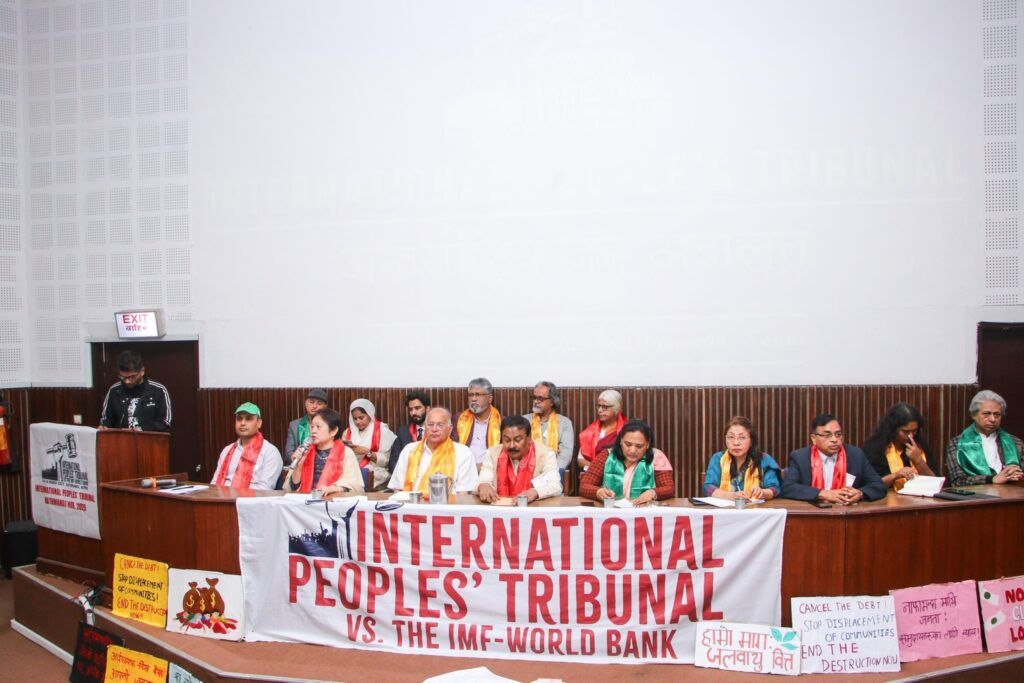
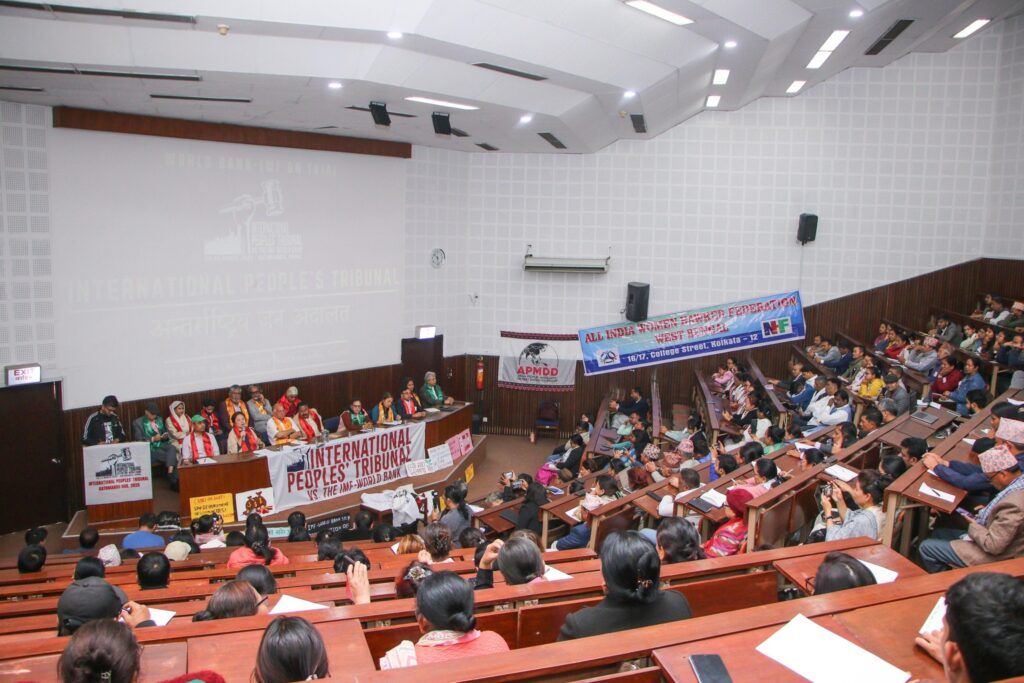
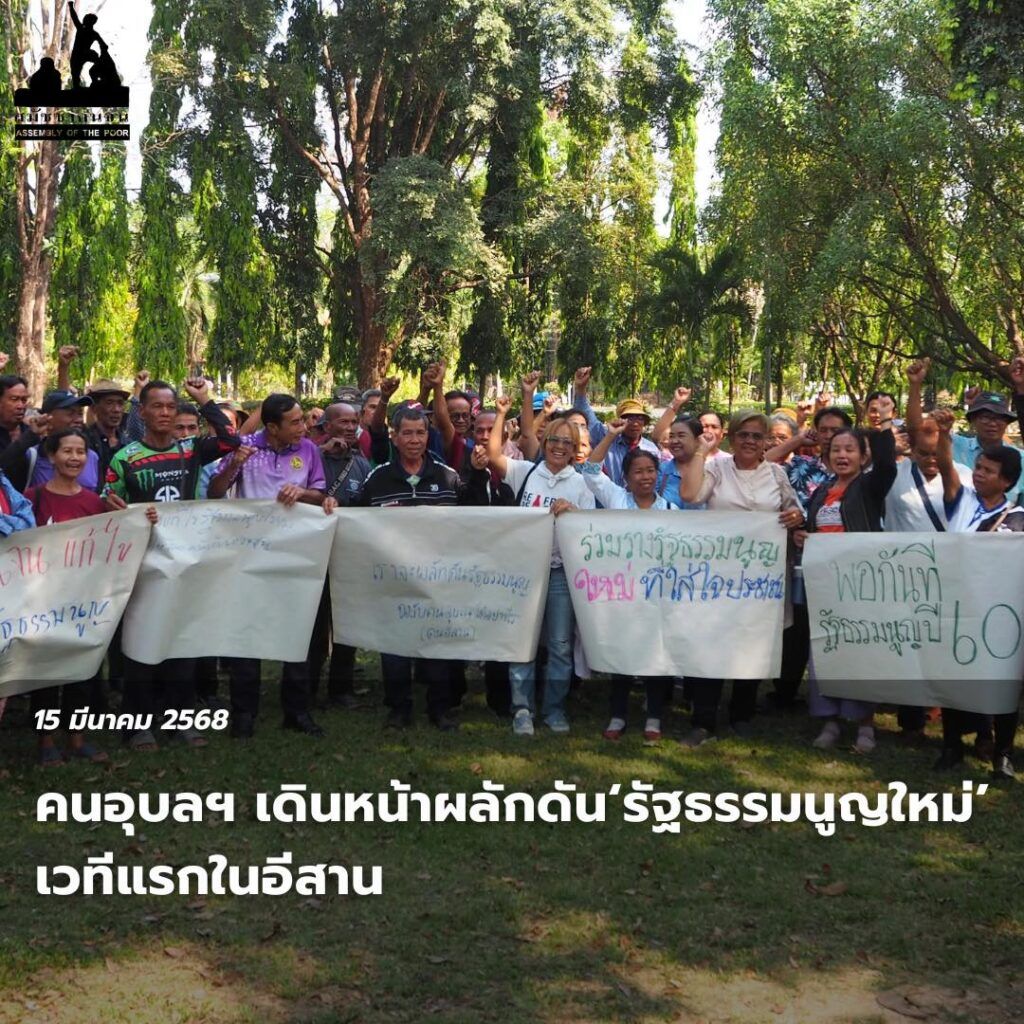
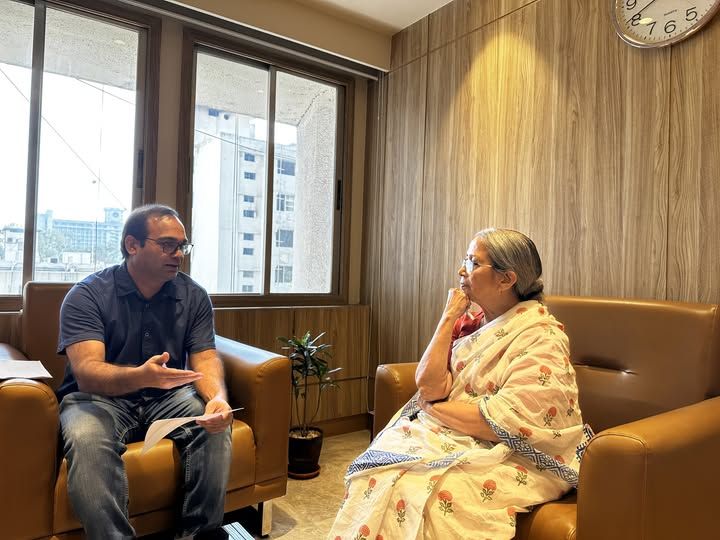
Africa:
In Uganda in early March, La Via Campesina Southern and Eastern Africa (LVC SEAF) and USAFF Uganda formalised the transition of the SEAF regional office to ESAFF Uganda. The event, which included two days of training on the values and principles of La Via Campesina, was attended by representatives from the LVC SEAF region and ESAFF Uganda. The rotation of the regional office represents an opportunity to further strengthen unity and solidarity among peasants, defend their struggles, rights and aspirations, consolidate the food sovereignty of our nations and ensure a just and sustainable food system for all.
In Mozambique, UNAC conducted training on nutrition and sexual and reproductive health for its members. Lack of information on sexual and reproductive health has always negatively affected children’s health and education. The training aims to raise awareness and empower farmers to become agents of change in their communities and to protect and defend children’s rights. In addition to these health trainings, UNAC trained and empowered 50 rural extension promoters in agroecology. The training contributes to boosting rural development and strengthening local autonomy in agricultural production by increasing production and productivity.
In Senegal, salt production continues under harsh conditions. The CNCR has supported women in Niaguis, in the department of Ziguinchor, and in Thionk-Essyl, in the department of Bignona, by providing them with new tarpaulins, which play a crucial role in the salt extraction process, which consists of collecting sand from the rice paddies. However, better equipment for extraction, transport and storage is needed to improve working conditions and production efficiency. This action is part of the CNCR’s ongoing efforts to support women farmers in producing their own food and strengthening their economic resilience.
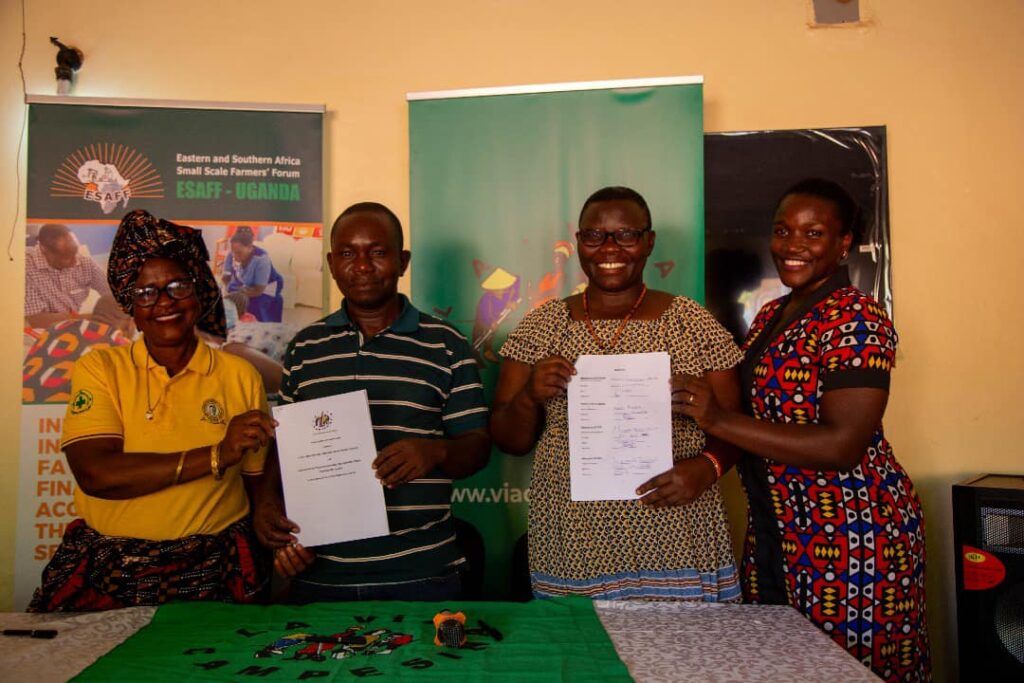
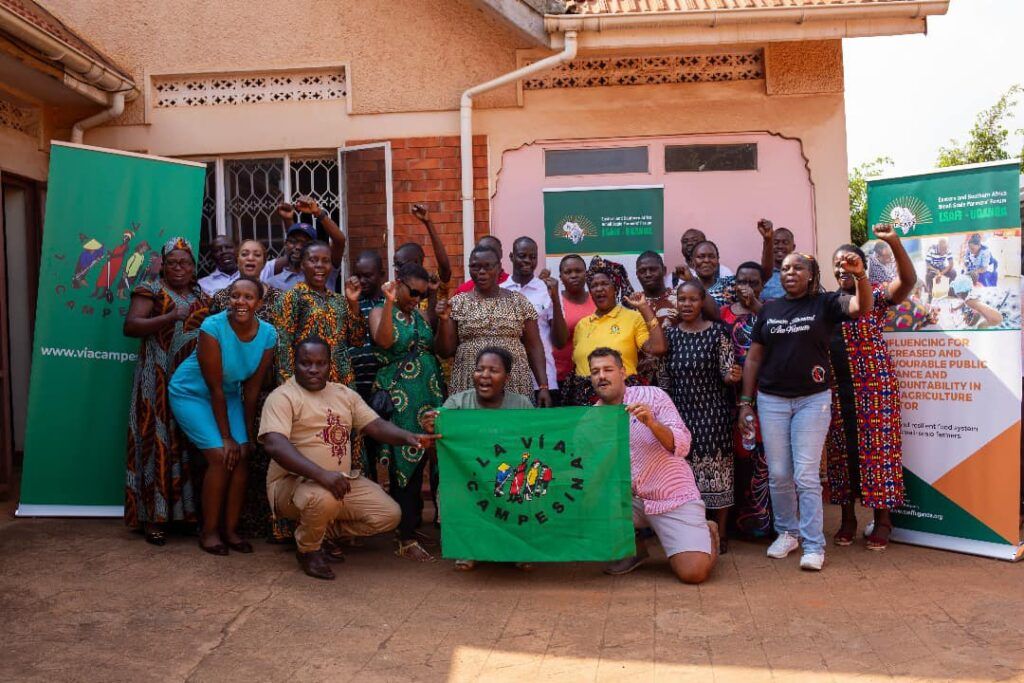
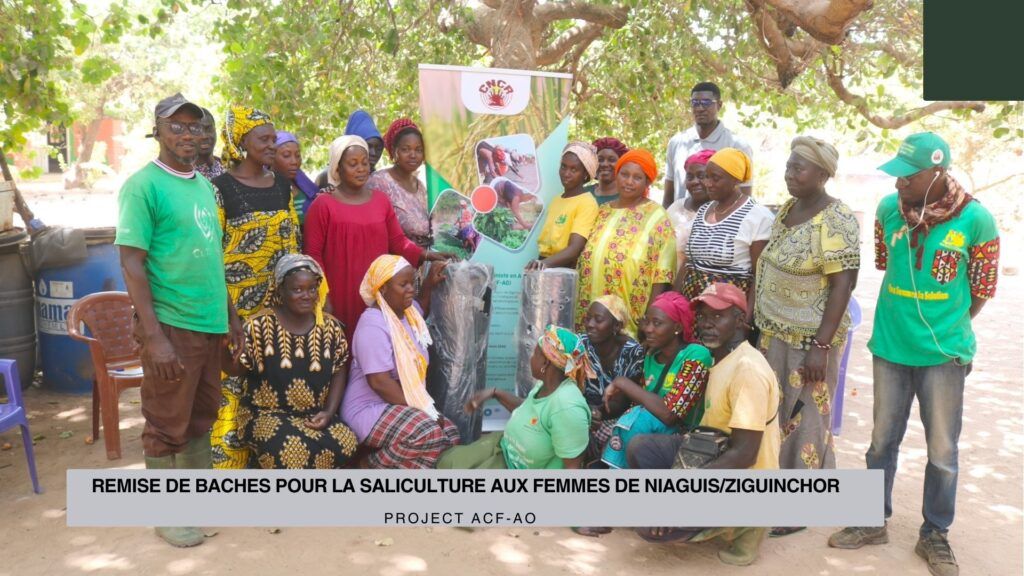
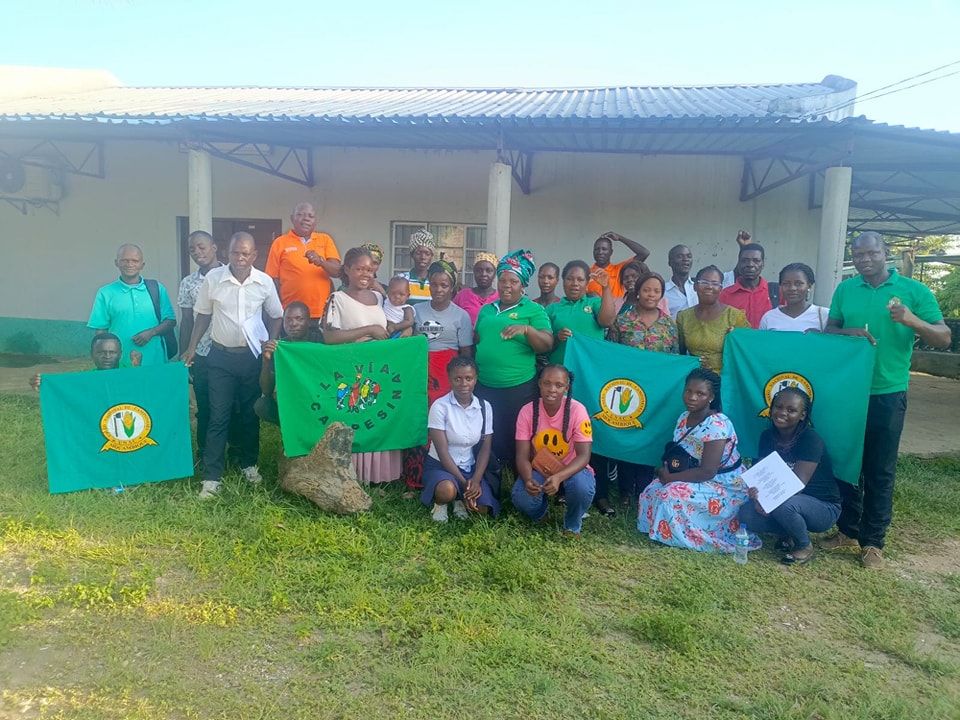
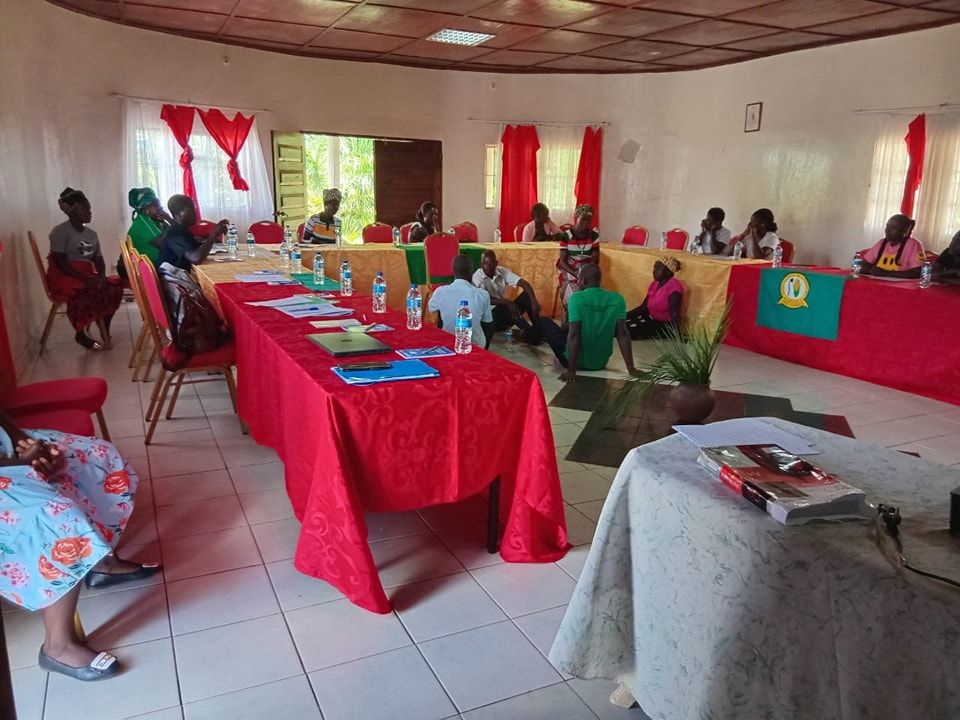
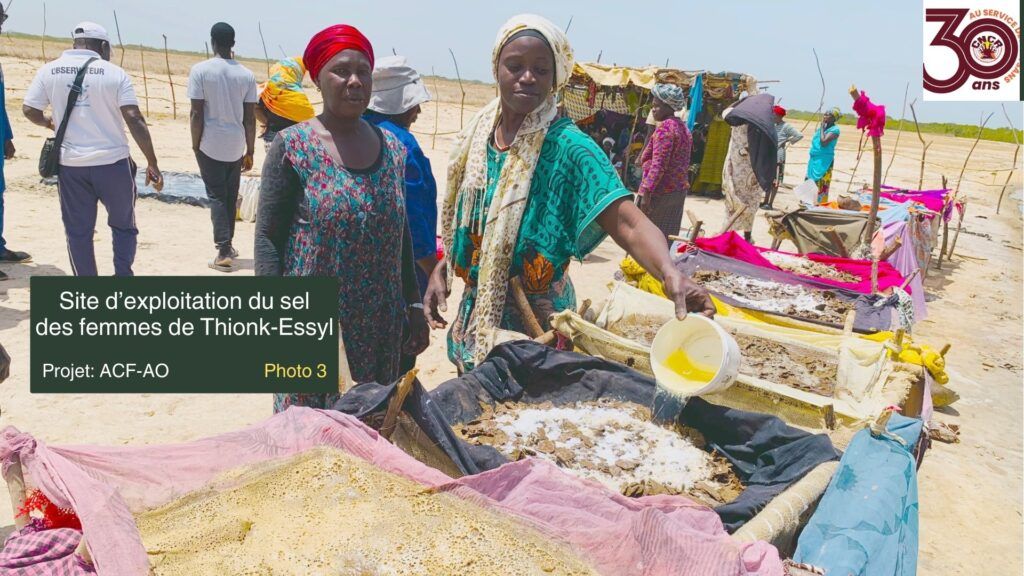
The Americas:
In Paraguay, the citizen’s weariness was expressed with three days of social, political and peasant protests against the government of Santiago Peña, corruption, business deals and impunity. With the slogan “For land, production and against all injustices”, the Peasant, Indigenous and Popular March, organised by the National Peasant Federation, took place on 26 and 27 March in the streets of Asunción. The march demanded real agrarian reform, access to land and production, and denounced the injustices affecting rural and indigenous communities. They came from all over the country to the ex Seminario to the centre of Asunción, in the Plaza de la Democracia.
In Colombia, CLOC – Via Campesina organizations condemned the opposition’s efforts in Congress to block social reforms, denying workers dignified conditions. During mobilizations, they denounced the labor reform’s collapse as an attack on those sustaining the economy, while the Agrarian Reform faces sabotage from powerful sectors opposing social justice. They asserted that elites impose exploitation and dispossession, but workers demand democracy, rights, and peace with justice. Thus, they mobilized and called for ongoing organization to defend necessary transformations.
In Guatemala, for World Water Day, communities and peasant and Indigenous organizations of the Peasant Unity Committee (CUC) mobilized across the country to demand the right to water and denounce its plundering by agro-industries and extractive companies. On 21 March, CUC’s organized youth protested in Cobán, Alta Verapaz, against water privatization and river pollution, condemning corporations for monopolizing water for monocultures like African palm, depriving communities of drinking water. On 22 March, mobilizations continued on the South Coast, exposing the severe water crisis caused by the sugarcane agro-industry’s river diversion and contamination.
In Honduras, peasant organizations demand recognition of peasant victims in the Pandora corruption case, where 282 million lempiras from the Ministry of Agriculture were misused. They highlight how corruption has devastated thousands, increasing migration, poverty, child malnutrition, and worsening agricultural production. The National Centre of Rural Workers (CNTC) filed an appeal in 2021, urging the Supreme Court to recognize over 4,500 affected families. These funds, meant to improve livelihoods through agriculture, were diverted between 2011 and 2013. Peasants continue to demand justice, denouncing the failure to resolve their appeal and the deepening crisis caused by corruption.
In Cuba, the XIIIth Congress of the National Association of Small Farmers, ANAP, will take place from 15-17 May, with more than 500 delegates from all over the country. The main guidelines that will be part of the congress are: the strengthening of the organisation, with special emphasis on food production, management structures, attention to the more than 88,000 female members, the children of peasants, and the programmes focused on rurality that are implemented in the country.
In the United States, 26 Family Farm Coalition farmers and advocates from across the country travelled to Washington D.C. for the coalition’s annual meeting. They shared their stories, challenges and aspirations with 50 congressional representatives. They brought a wide range of experiences and expertise to each office visit, coming from all agricultural sectors, races, genders and ages. In addition, they addressed five Farm Bill platform issues, charging that current federal farm policy generally supports the status quo, to the detriment of family farmers and the average consumer. They called for fair farm policies that prioritise family farmers.
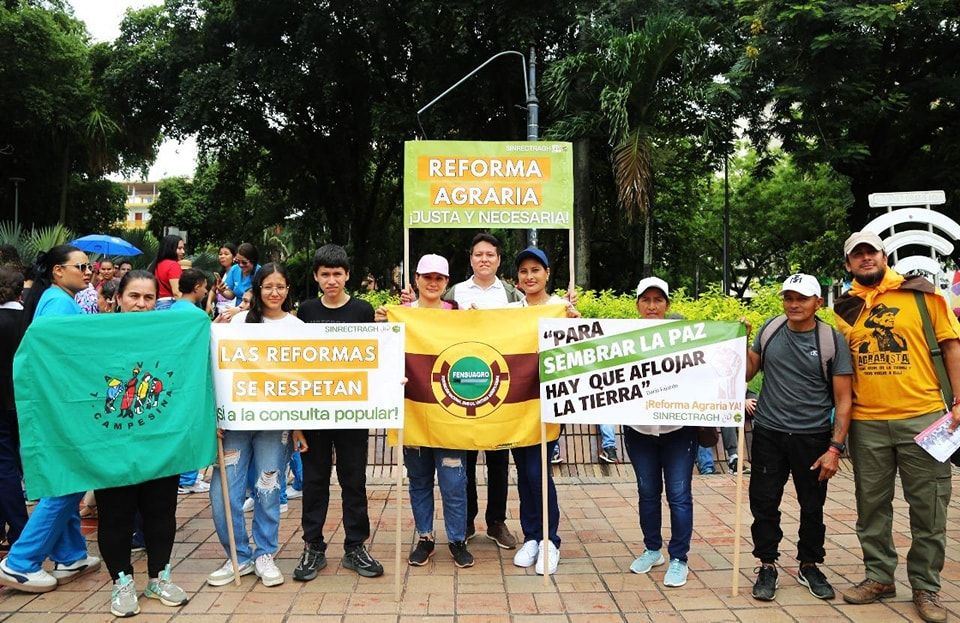

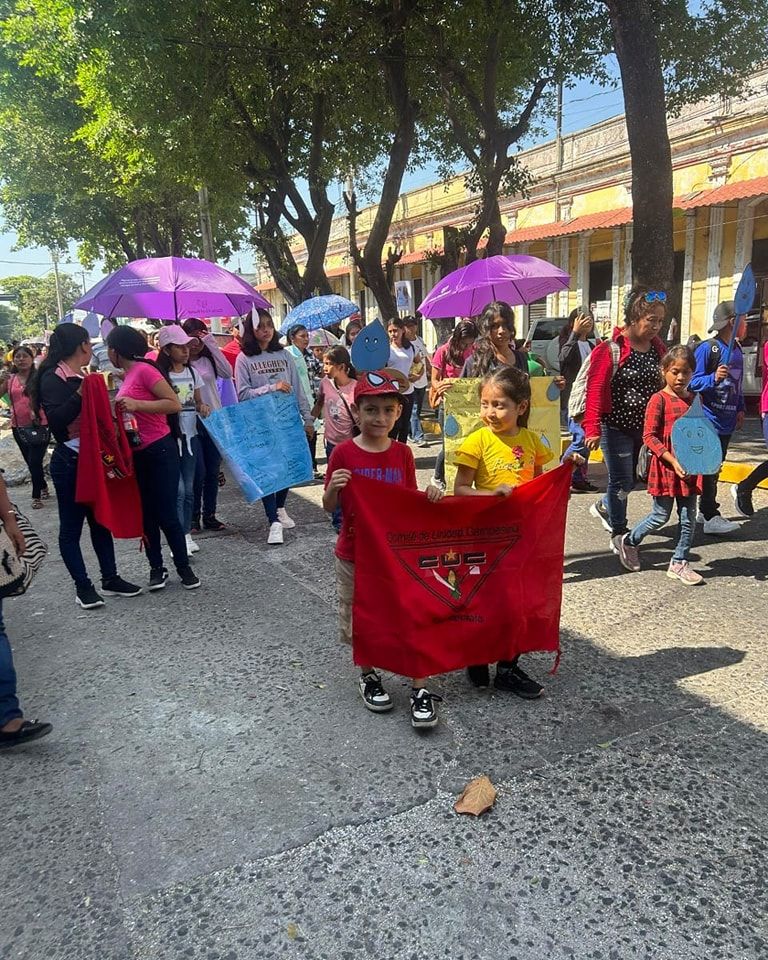
Arab and North African region:
This month in Palestine, as part of ongoing efforts to support the resilience of Gaza’s farmers and herders, the Union of Agricultural Work Committees (UAWC), in collaboration with the Food and Agriculture Organization of the United Nations (FAO) and the Palestinian Ministry of Agriculture, distributed 1,000 tonnes of animal feed. This important initiative aims to ease the economic burden on farmers and strengthen food security in the face of the growing challenges caused by the war that has been raging for more than a year and a half. These efforts are crucial to support farmers, provide emergency relief to ensure the continuity of agricultural production and preserve livestock. Despite the enormous challenges, they contribute to the reconstruction of the agricultural sector in Gaza, ensuring its sustainability in the face of the current adversity.
In Morocco, the National Federation of Agricultural Workers (FNSA) continues its fight against the repressive “strike law” that restricts the rights of agricultural workers. They demand continued protests against this law, demanding its repeal and the fulfillment of all commitments from the Ministry of Agriculture, particularly those related to social dialogue. This legislation seeks to suppress the right to protest against injustices and prevents agricultural workers from defending their rights. By restricting the exercise of this fundamental right, these dangerous measures threaten to reverse hard-won gains and silence opposition to aggressive policies.
Europe:
The Land Workers Alliance (LWA) and other organisations have been advocating for small farmers in England to ensure that the Sustainable Farming Incentive (SFI) benefits them. While the removal of the 5 hectare threshold for SFI payments last July was a victory, there are still challenges to making the scheme accessible and effective for smaller farms. In response to the unexpected announcement by the Department for Environment, Natural Resources and Rural Affairs (DEFRA) that it would no longer accept SFI applications due to budget constraints, LWA urges farmers to take action and join the “Food in Our Hands” march on 26 April to demand a fair and agro-ecological food system that respects the rights of small-scale farmers.
In a recent statement from the Regional Leaders’ Meeting of the Norwegian Association of Farmers and Smallholders (NBS), our member group in Norway emphasised the crucial need for resilient and diverse farming systems to address food insecurity and improve community preparedness. The NBS stresses that thriving rural communities and sustainable agriculture are key to achieving greater national preparedness. They advocate for a diversified agricultural landscape that supports small-scale farming, with fruit, vegetable, cereal and livestock production, while calling for better management of communal lands. A transition to local food systems, with shorter supply chains and decentralised food storage and processing, is essential to reduce vulnerability in times of crisis.
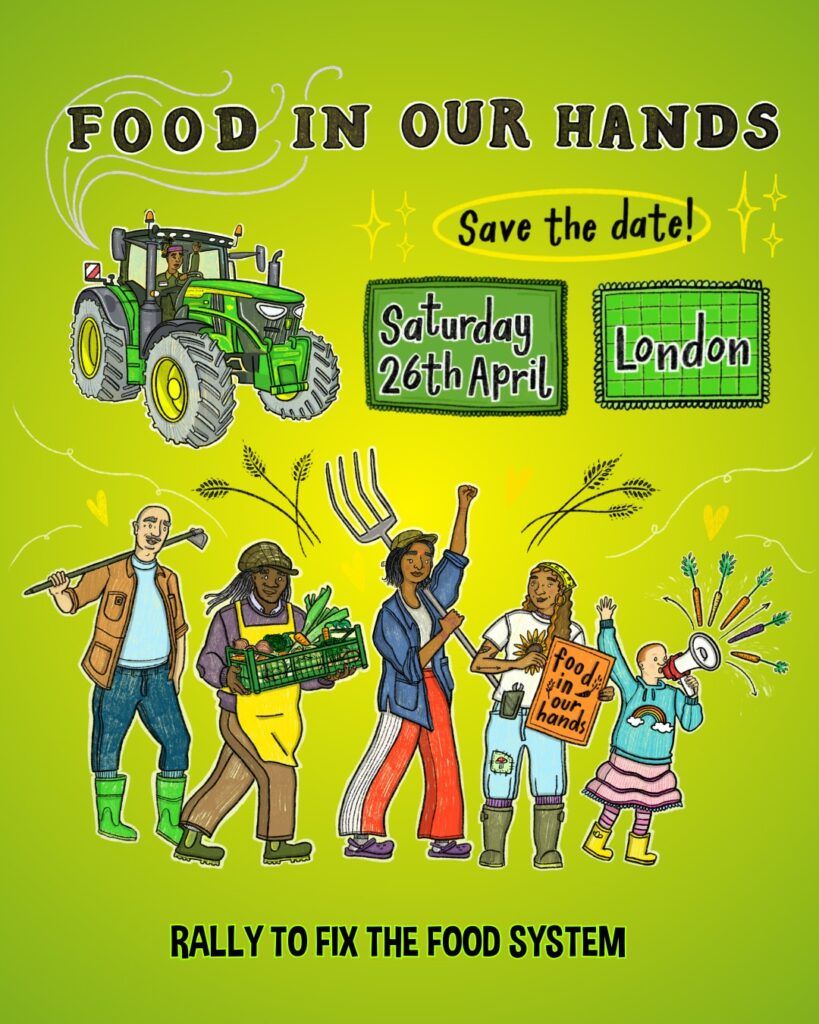
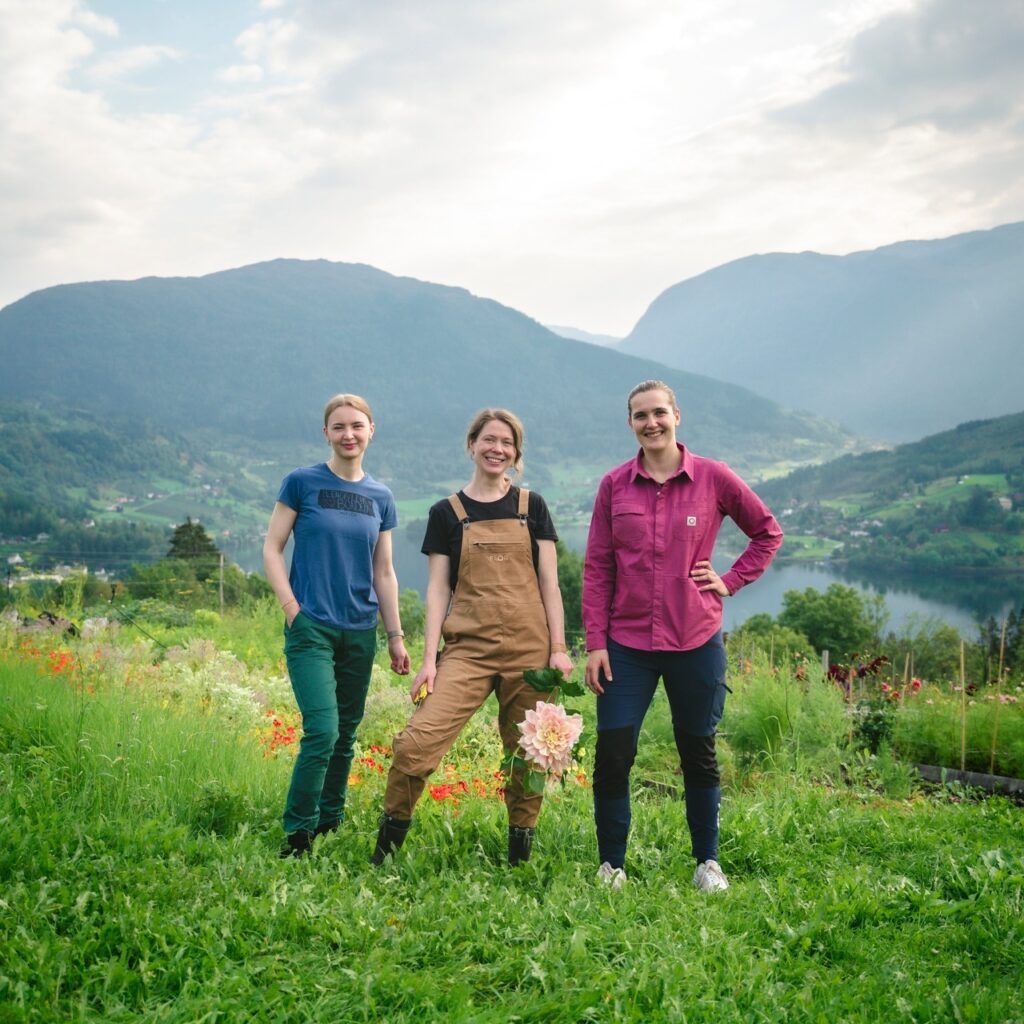
We wrap up this months edition here. For more updates from March 2024, visit the website. If there are any important updates we have missed, please send the links to communications@viacampesina.org so that we can include them in the next edition. We only include updates from La Via Campesina members. Previous editions of our news wrap are also available on our website, and condensed versions are accessible as a podcast on Spotify.
